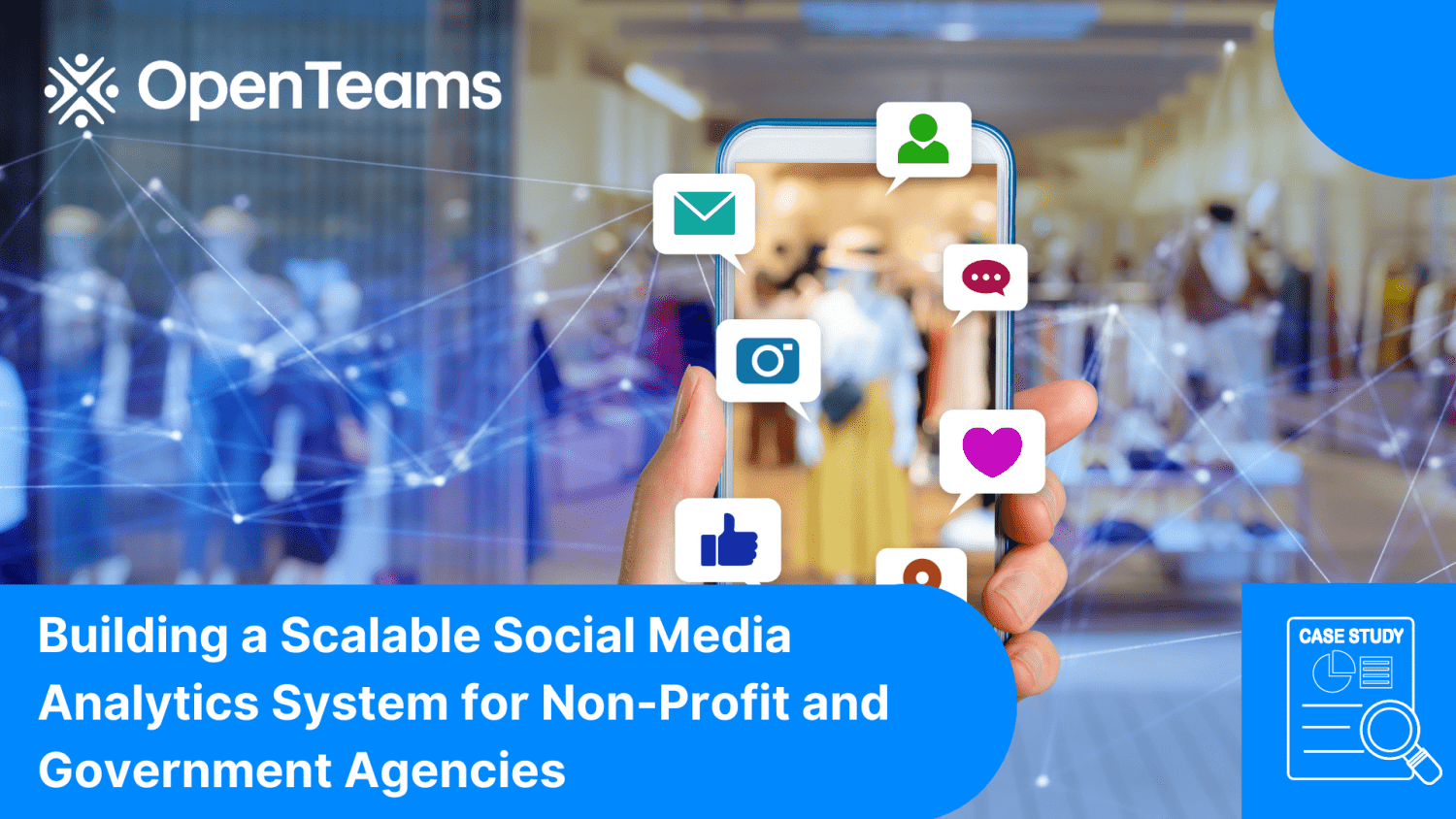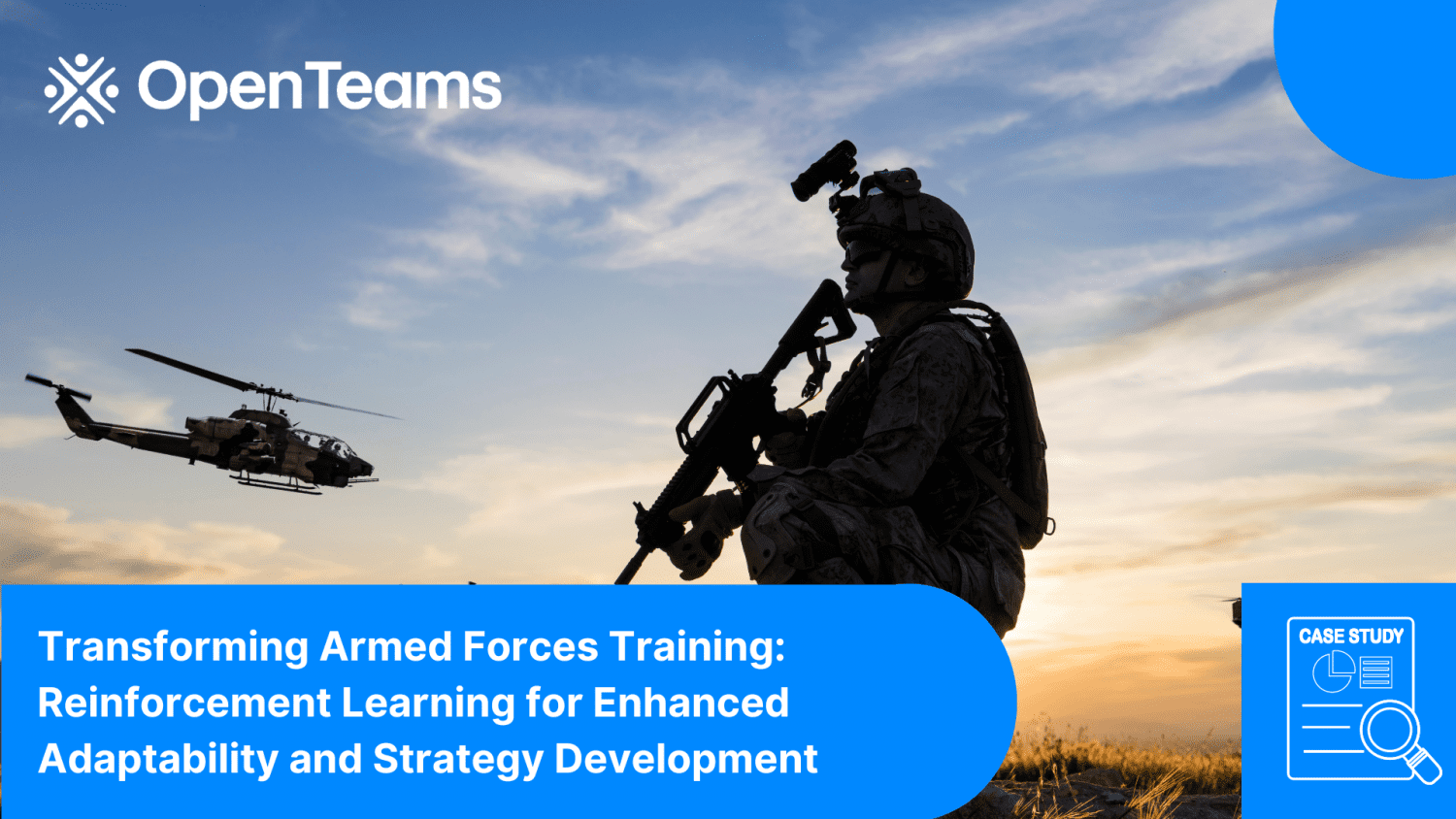In the fast-paced world of technology, transitioning into an engineering manager role can be both exciting and challenging. In a recent episode of the Engineering Manager podcast, host Steven Tedjamulia sat down with Brad Messer, a seasoned technology leader, CTO of data science enthusiasts, and tech innovator, to discuss the crucial aspects of the first 90 days in this role. The conversation provided valuable insights and advice for engineering managers looking to make a successful transition and build effective leadership strategies.
Understanding the Significance of the First 90 Days
The podcast discussion kicked off by highlighting the importance of the first 90 days for engineering managers. Brad Messer emphasized that this period is a significant shift from being an independent contributor focused on technical aspects to taking on a broader role that involves learning about the business, emotional intelligence, and managing people. It’s a time to build relationships, establish one’s leadership style, and set the right guideposts for the team.
Building Relationships and Managing Up
Brad Messer and Steven Tedjamulia delved into strategies for building relationships with the team and effectively managing up to executives. They emphasized the role of mentors in helping new engineering managers navigate this transition. Having multiple mentors can provide different perspectives and insights into the various challenges that arise in leadership roles. Additionally, they discussed the importance of getting to know team members individually and understanding their strengths, weaknesses, and work dynamics.
Choosing an Effective Leadership Style
The conversation then shifted to discussing leadership styles and finding the right balance between technical expertise and leadership responsibilities. Brad Messer stressed the importance of being authentic while adapting one’s leadership style to honor business goals and connect with team members. He cautioned against getting lost in the multitude of leadership styles and encouraged engineering managers to focus on maintaining humility, learning, and being open to feedback.
Balancing Technical Expertise and Leadership
The podcast continued by addressing the challenge of balancing technical expertise and leadership responsibilities. Brad Messer shared his insights on the importance of understanding one’s role and focusing on strategy while delegating tasks to team members with the necessary expertise. He cautioned against overloading oneself with technical work, as it can impact work-life balance and hinder effective leadership.
Defining Strategy in the First 90 Days
Defining a clear strategy in the first 90 days emerged as a crucial aspect of successful engineering management. Brad Messer highlighted that the first-line manager’s vision often comes from higher up in the organization, but it’s the manager’s responsibility to translate that vision into actionable plans. They discussed the significance of prioritizing tasks, setting deadlines, and ensuring the team focuses on delivering quality products on time.
Conclusion
In this insightful podcast episode, Brad Messer shared valuable insights for engineering managers navigating the challenges of their first 90 days in a leadership role. The conversation underscored the importance of building relationships, adapting leadership styles, and finding the right balance between technical expertise and leadership responsibilities. Engineering managers seeking to thrive in their new roles can draw from Brad Messer’s experiences and advice to establish effective leadership strategies and drive success within their teams and organizations.
Podcast Transcript
Steven Tedjamulia:
Hello everyone. Welcome back to another exciting episode of the Engineering Manager podcast. I’m your host, Stephen Tijamulia. And today we have a truly exceptional guest with us. Joining us is Brad Messer, a seasoned technology leader, CTO of data science enthusiasts and tech innovator. Brad, it’s a pleasure to have you on the show.
Brad Messer:
It’s been a pleasure to be here, so thank you so much for having me.
Steven Tedjamulia:
Oh, fantastic. Well, today we’re diving into a topic that’s near and dear to every engineering manager’s heart, navigating the first 90 days in their new role. Brad, you’ve had this incredible journey in the tech industry, very valuable insights. So let’s just jump in and talk about this. So I just was talking to earlier to a friend of mine, he just took on a new role as an engineering leader in his organization, just today he announced it. But why is it so crucial in those first 90 days to understand and make use of that time? Why is that so important to an engineering manager?
Brad Messer:
Yeah. So, you know, this is the, you know, this is the biggest shift from working as an independent contributor, independent contributor, you know, really working on the code. And of course you’ve had to work with people through it, but, you know, you’re, it’s more focused on the technical aspects of things. But then as you’re shifting, you’re learning a lot more about the business. You’re learning, you know, you’re learning a lot more about people, you know. emotional intelligence and it’s just a huge change. I mean, there’s so much to learn. There’s, you know, you have to learn how to act through people, you know, rather than acting yourself. There’s a lot to it.
Steven Tedjamulia:
Yeah, there is a lot. I mean, you’re setting the guideposts of how, number one, understanding that team, how they’ve been working, setting your guideposts of how you will be working or making changes, and then your style of leadership, those social connections you’re building. These are all really important parts that, I think if you don’t set that right in the beginning, it could really be a bumpy road ahead if you can’t get that right. So talking a little bit about one of those pieces, which is you’re building the relationship with your team and managing up to your executives. What have been some strategies that have you used in the beginning that you’ve put together to be able to do that? What has worked for you? What hasn’t? Love to know more.
Brad Messer:
So, I mean, definitely making sure that you have the right mentors is always good. And so, you know, that was definitely key for me really getting started. There is an interesting phenomena that you can kind of see in tech. You know, some people will go straight from they’ll go. What I want to say, they might get promoted from within the team to manager. And some of that is actually being called like an apprentice manager. So even then, you know, you’re an engineering manager, but right. But you’re still considered an apprentice in a way, because you still have to learn the ways of the business, the ways of the team. And so, you know, what I’m trying to get to is, you know, finding the right people, oftentimes even having multiple mentors. You know, I’ve been advised to have three to four different mentors at any given time. Uh, you know, I’ve, so I’ve not, I’ve been more about like reading from books just because I’m able to get that information faster. If I have trouble during the day, okay. I go home at night and I’m like, okay, I need to, I need something related to this so I can just not hit that issue the next day. Um, so I. Definitely had success with that. I mean, so, it’s definitely that. I can’t say I’ve really, sometimes I’ve had trouble with, you know, people per se that are, you know, I always like to think it’s more of a flatter hierarchy, but then it can be. when somebody has more life experience than you, but like technically you’re higher up in the hierarchy. So it’s about knowing, you know, how to navigate that relationship together for the best possible outcomes. And it definitely gets tricky.
Steven Tedjamulia:
Yeah, I like your concept of the mentoring. I know that is a very important part, having internal and external mentors that can guide you. I know some other feedback items and more than happy to jump in here, but getting to know the whole, you may already be part of a team to get to know them, but sitting and get to know each one of them and understanding what’s worked, what hasn’t worked, right, for them, where they stand, and then meeting with the people you need to report to. Those are, to your mentoring point, good ways to get data in of what is gonna set the course for your next 90 days. And then meeting with those mentors to get external feedback. So building those relationships and nurturing them over time through one-on-ones and then activities to do, those are all good things as well. So love that mentoring angle, getting that data in sets a strong foundation for those 90 days. So like, Elaber and Larmor, what are some of the things about leadership style that you’ve seen that have worked best for, you know, the first 90 days, right? What type of leadership style should you have, you know, in the beginning? How do you, you know, what works well? Any thoughts you have there?
Brad Messer:
I mean, I think as long as you’re yourself to a certain extent, and you know always just how to honor the person in front of you and honor the business goals, you should be okay. We don’t have to get lost in the millions of different leadership styles. I was reading a book where somebody posted, here’s like 31 different types of leadership styles. And I’m like… It
Steven Tedjamulia:
There’s
Brad Messer:
works.
Steven Tedjamulia:
a lot of them.
Brad Messer:
It’s just, you know, we’re going to get lost in taxonomies, hierarchies, and it’s a rabbit hole very quickly. So it’s, you know, honor the business goals, you know, honor the people that are in front of you. You know, you’ll pick up the, you’ll pick up how to make the trade-offs over time, and that’s where having the higher level mentors come into play. And so, you know, I don’t think it’s, I don’t think there’s one really right answer because, you know, every situation really is going to be unique, even though there are going to be common patterns of, you know, behavior that will occur. So it’s, you know, it’s all just, it’s all really just about a friend put it earlier, uh, winning and learning.
Steven Tedjamulia:
Winning and learning. Yeah, I like that. You know, you keep going on the mentoring angle. I think that’s very good. There’s many different ones. I think in the first 90 days too, to add to that one, you know, there’s 30s a lot, but I think the servant leader in the beginning is important because as you’re transitioning potentially from a sole contributor or from another organization, people may have their guard up. Okay, hey, you know, who are you? Why you as a manager? So being able to show that, you know, I’m here to help you guys, right? I’m here to help, I’m here to facilitate what you’re doing. I’m here to bring the team together and then serving them from a team perspective. And then to your point, learning how to be a, play a part in that larger organization. Takes a lot of humility, pride, letting them pride down about the new position. That sets a good tone and precedence. to your initial steps forward. And then as you get everybody corralled and in the same direction, laying the foundation to show what needs to be done to take it to the next level in a humble way, but in a way of speed, that does help. So understanding those play those two points and that mentoring angle that you brought up, those are all good things as you’re coming in the first 90 days. I’ve seen leaders fall where they just come in and think they know everything and then like, lay out. Have you seen that? Where they just lay out their plan and it’s just, it derails everything. I’ve seen that fail a lot of times. I don’t know what’s your experience been.
Brad Messer:
Uh, you wanna make sure that you’re the stupidest person in the room. Ha ha ha ha ha ha ha ha ha ha ha ha ha ha ha ha ha ha ha ha ha ha ha ha ha ha ha ha ha ha ha ha ha ha ha ha ha ha ha ha ha ha ha ha ha ha ha ha ha ha ha ha ha ha ha ha ha ha ha ha ha ha ha ha ha ha ha ha ha ha ha ha ha ha ha ha ha ha ha ha ha ha ha ha ha ha ha ha ha ha ha ha ha ha ha ha ha ha ha ha ha ha ha ha ha ha ha ha ha ha ha ha ha ha ha ha ha ha ha ha ha ha ha ha ha ha ha ha ha ha ha ha ha ha ha ha ha ha ha ha ha ha ha ha ha ha ha ha ha ha ha ha ha ha ha ha ha ha ha ha ha ha ha ha ha ha ha ha ha ha ha ha ha ha ha ha ha ha ha ha ha ha ha ha ha ha ha ha ha ha ha ha ha ha ha ha ha ha ha ha ha ha ha ha
Steven Tedjamulia:
You’re learning, right? Like the learning and trying to absorb everything you can before you make the decisions, right?
Brad Messer:
Yeah, I mean, oftentimes it’s interesting because, you know, there’s a couple of different routes to get to manager. And oftentimes, you know, when you’re going to a new team, which is what I’ve typically seen, you know, that’s when you really have to be, you know, I, that’s when you really have to emulate what you’re saying. Now, the other route is that an apprentice manager will be, uh, So what do I want to say? They’ll be promoted from within the department to lead the department. And so what happens there is it brings about an interesting different dynamic. And it’s not bad. It’s just everybody knows each other. You just have to figure out that dynamic differently. And so I’ve seen it. probably happen somewhere maybe around like an 80-20, 90-10 split in favor of, you know, going to a new department versus being like an apprentice manager in that sense from getting promoted within the department. But, you know, just always, you know, always, you know, being willing to learn and to let yourself be taught is very important.
Steven Tedjamulia:
Yes, the humble attitude, the learning attitude, those are key attributes of a good engineering manager, especially in the first 90 days. So you’ve been a CTO, you’ve been a data science, and you know, architect, you are, you know, AI, ML, architect today. How do you balance that technical expertise and the responsibilities of a leader, right? What is a good balance that people need to achieve as they do that.
Brad Messer:
Hmm, this is interesting because it’s… This is interesting because everybody has a different idea of what technical depth means to them. And so I would usually say it’s the, you know, know what you need to know to do the job that’s in front of you. And for most people, you don’t want to learn anything more. kind of a… I handled things differently where I went all paths at once, and that is not what I would recommend for most people. Do not do that to yourself.
Steven Tedjamulia:
Yeah, what does that mean? Tell me a little bit more when you say I’ll pass at one.
Brad Messer:
So if I wasn’t a CTO, but I was doing the data science work, I would be writing the research model, deploying the research model, working with the front end people to help figure out how to tie it into the deployment, at the same time handling all the business work too. And it gets. What I’m trying to say is, you know, for most people, it just, it’s a lot to learn. And you, you know, not, that’s a, that’s a level where, you know, your life balance is going to get thrown off and I don’t want to see that for anybody. You know, so I just want to say, you know, be careful of work life balance in and of that. But. You know, also have, you know, also have the ambition to push yourself though. And so.
Steven Tedjamulia:
Yeah, your concept of not doing all the work, but being able to assign different people what their swim lanes are and how they work together with each other and managing those becomes a big part of it. Cause if you’re tempted too much to be in there doing all the work, you’re gonna, the train will get derailed very fast.
Brad Messer:
Yeah, and that was actually very, you know, that was actually very key for me because I do like, you know, I don’t mind working hard and working really long hours on the normal, but, you know, part of becoming CTO made it easier for me is like, okay, I’m a CTO, meaning it’s just easier for me to focus on strategy. And then, you know, there was, you know, there were differences in how we wanted to work and work together. And so, you know, now I can delegate work to people who, you know, work at a similar rate. And it’s not a bad thing. Like I don’t want anybody to, you know, I don’t want to make like any power disparity or anything like that. And, you know, it, but it’s one thing that helped me just, you know, be a better person. for everybody else.
Steven Tedjamulia:
Yeah, so that learning how to set the strategy and what we’re gonna do and splitting out the different roles and then helping people succeed in those roles, right? That becomes a good way to govern and to manage that. And then mentoring more than doing, that’s probably a new, someone played a new record, you gotta learn how to play, or a new instrument you have to learn how to play is mentoring versus just getting it done yourself. And maybe not like you want to do it, but they’ll get there.
Brad Messer:
Yeah, I mean, the further up the ladder you go, you know, the more you’re acting through others, and the less you’re acting yourself. And you know, so you’re always going to be acting in the higher leverage ways, and they’re going to be acting in the lower leverage ways while they learn the higher leverage ways. And,
Steven Tedjamulia:
Yes.
Brad Messer:
you know, then eventually they’ll be doing the higher leverage ways themselves.
Steven Tedjamulia:
So how important is it to define the strategy in the first 90 days and what you’re trying to achieve and put that plan in place? How important is that to you, Brad?
Brad Messer:
So I think it depends on what level of engineering leadership you’re talking about. So there’s first line, second line, director, VP, all the way up to CEO. And so it’s all the
Steven Tedjamulia:
Let’s
Brad Messer:
way up
Steven Tedjamulia:
focus
Brad Messer:
to CEO.
Steven Tedjamulia:
on the manager, like the manager level of a team.
Brad Messer:
Okay, so first line?
Steven Tedjamulia:
Yes.
Brad Messer:
Okay, so for the most part, the first line vision is really coming from up above. And they’ll say, here’s the piece of your pie, and here’s what it’s gonna look like. And then it’s up to you to parse that out and then figure out, okay, here’s who on the team is doing what, here’s how much staffing that we need to do that. And so that’s kind of what the first line manager really looks like.
Steven Tedjamulia:
Yeah, and that, I think defining that, if it’s not in place, critical, right? First 90 days.
Brad Messer:
Mm-hmm.
Steven Tedjamulia:
Have you seen anybody who’s challenged, any team that was challenged with that, have you been a part of that, and what happens when you don’t do that?
Brad Messer:
Hmm. I mean, I’ve certainly, I’ve certainly been on projects where we, where the engineering team went about things different ways to different results. I think as long as you go in with the, I think as long as you go in with the idea that you will, you know, meet all your deadlines and, you know, focus on shipping good quality product over, you know, trying to be fancy. I mean, I think that’s the most successful thing I’ve learned. So I usually try to focus on learning, but then figure being like, I’m gonna go into a job role and I’m gonna create all these new ancillary products in addition to the product that I’m creating because then it’s just, it’s easier on the business if you get stuff done early than if you get stuff done later.
Steven Tedjamulia:
Yeah, so balancing the roadmap of features are gonna be built when they’re gonna be built on time, right? Those are all become part of that strategy.
Brad Messer:
Yep, and it’s also part of engineering leadership to make sure that people are making sprint deadlines. And so, of course, you don’t have to be a complete, you don’t have to be really tight about everything has to meet the end of a sprint deadline because only the stuff that is vital, the shipping, has to get done. you know, about the feature date. And then, you know, we’ll have a bunch of nice to haves and then bunch of stuff that is just, it’s probably not gonna make it.
Steven Tedjamulia:
Yeah.
Brad Messer:
And so, you know, that stuff, it just, it tends to happen naturally on the job. And, you know, the backlogs will stay nice and padded. And it tends to be kind of an unspoken truth that the backlog is just padded, but it… not necessarily gonna get everything.
Steven Tedjamulia:
Yeah, and there’s so much more here. You know, we’re up here on the 20 minutes. Brad, I thank you. It’s been a pleasure having you on the show. I wish I could go longer, but to our viewers, we try to keep it in 20 minutes. Thanks for sharing all those insights, right? It’s helping new engineering managers, existing ones, take some of your best practices, mentoring, how to prepare for the 90 days, and taking those and applying them in their lives. Listeners, thank you very much. We’re tuning into this episode. We’re gonna take this article, make it to the magazine article, and we post this podcast on YouTube. So thank you everyone for listening to Engineering Managers and Brad, I appreciate your time and for being here. Thank you very much.
Brad Messer:
Thank you.
About The Engineering Manager Podcast
The Engineering Manager Podcast is your audio gateway to the world of leadership, innovation, and success in engineering management. Join us as we engage with industry experts, thought leaders, and seasoned managers to explore the dynamic landscape of engineering leadership. Gain valuable insights, actionable strategies, and firsthand experiences that will empower you to navigate challenges, drive innovation, and lead your teams to new heights. Tune in and engineer your path to leadership excellence with The Engineering Manager Podcast.
About OpenTeams
OpenTeams is a provider of open source solutions for businesses worldwide. Our goal is to connect organizations with open-source communities to help them optimize their use of open-source technologies while also supporting the communities they depend on. We help companies by being a single trusted vendor to provide service-level agreements for support, training, and general contracting and we help open-source communities by enabling participants to efficiently provide their paid services to organizations so they can spend more of their scarce time on open-source development and less time on business development. We provide unparalleled expertise and resources to help businesses achieve their goals. Our flexible support plans allow organizations to pay for only what they need, and our network of experienced Open Source Architects is available to provide top-notch support and guidance around the world allowing for 24/7/365 support. We are committed to fostering a community of innovation and collaboration. We support OSPN.org which enables open-source contributors to advance their careers as an open source contributor, and we sponsor our OSA community to provide tech-leaders with open-source expertise to gather and discuss how to help businesses achieve better results with open-source.
Related Articles
Computer Vision for Automatic Vehicle Damage Detection and Cost Estimation
Transforming ML Infrastructure for Improved Model Maintenance and Performance
Empowering Data-driven Innovation: Building a Scalable Data Science Platform for Seamless Data Modeling and MLOps Excellence
Unleashing Computational Speed: Enhancing Risk Models for Compliance in a Global Financial Powerhouse
Transforming Armed Forces Training: Reinforcement Learning for Enhanced Adaptability and Strategy Development
Unlock the power of open source for your business today
OpenTeams provides businesses with access to a team of experienced open source professionals who can help them unlock the power of open source technologies, delivering customized solutions tailored to their specific needs and goals. Get in touch with us today to learn how we can help you leverage open source to achieve your business objectives.






